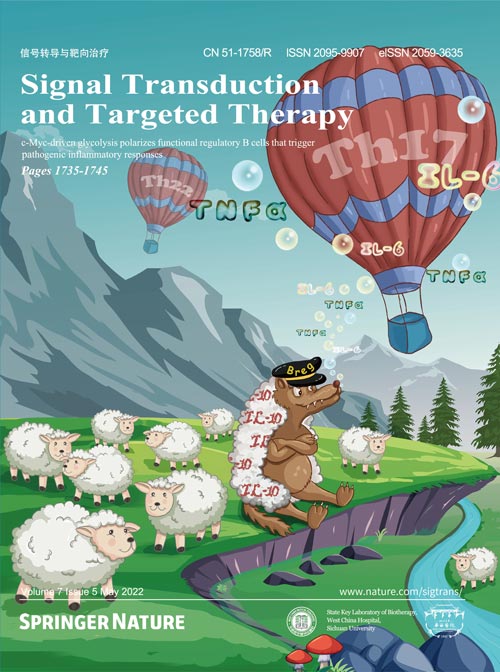Volume 7 Issue 5, May 2022:
Article
A genetic variant in IL-6 lowering its expression is protective for critical patients with COVID-19
Bo Gong,Lulin Huang,Yongquan He,Wen Xie,Yi Yin,Yi Shi,Jialing Xiao,Ling Zhong,Yi Zhang,Zhilin Jiang,Fang Hao,Yu Zhou,Huan Li,Li Jiang,Xingxiang Yang,Xiangrong Song
ORCID: orcid.org/0000-0002-2853-2696,Yan Kang,Lin Tuo,Yi Huang,Ping Shuai,Yuping Liu,Fang Zheng &…Zhenglin Yang
Critical coronavirus disease 2019 (COVID-19) is associated with high mortality and potential genetic factors have been reported to be involved in the development of critical COVID-19. We performed a genome-wide association study to identify the genetic factors responsible for developing critical COVID-19. 632 critical patients with COVID-19 and 3021 healthy controls from the Chinese population were recruited. First, we identified a genome-wide significant difference of IL-6 rs2069837 (p = 9.73 × 10−15, OR = 0.41) between 437 critical patients with COVID-19 and 2551 normal controls in the discovery cohort. When replicated these findings in a set of 195 patients with critical COVID-19 and 470 healthy controls, we detected significant association of rs2069837 with COVID-19 (p = 8.89 × 10−3, OR = 0.67). This variant surpassed the formal threshold for genome-wide significance (combined p = 4.64 × 10−16, OR = 0.49). Further analysis revealed that there was a significantly stronger expression of IL-6 in the serum from patients with critical COVID-19 than in that from patients with asymptomatic COVID-19. An in vitro assay showed that the A to G allele changes in rs2069837 within IL-6 obviously decreased the luciferase expression activity. When analyzing the effect of this variant on the IL-6 in the serum based on the rs2069837 genotype, we found that the A to G variation in rs2069837 decreased the expression of IL-6, especially in the male. Overall, we identified a genetic variant in IL-6 that protects against critical conditions with COVID-19 though decreasing IL-6 expression in the serum.
